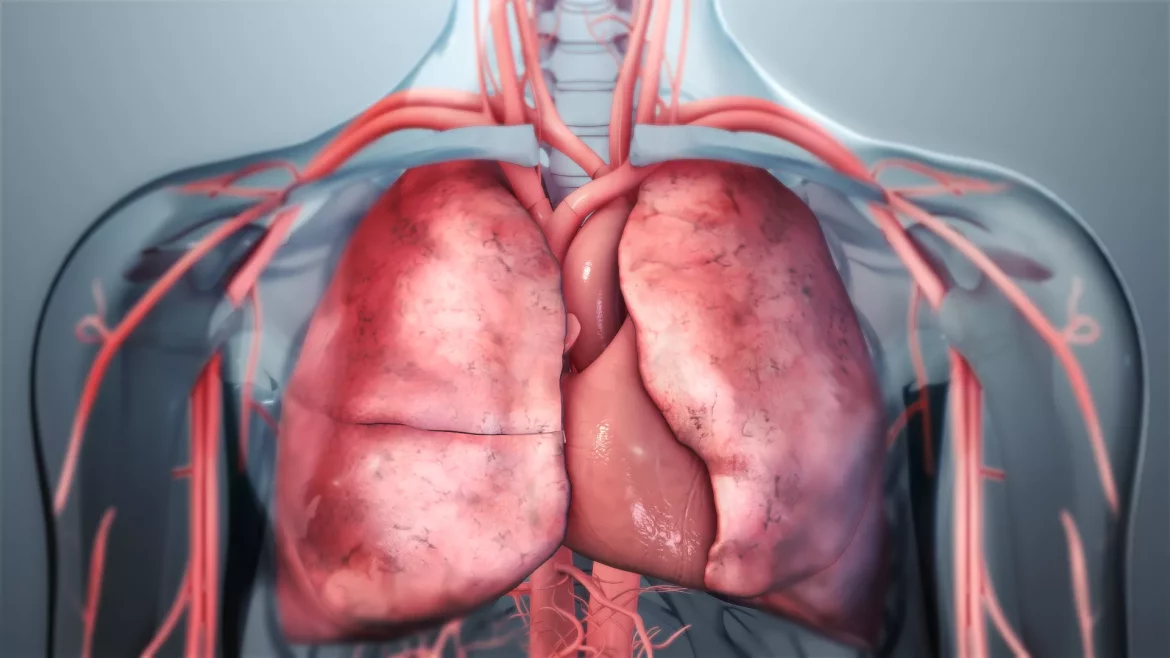Cardiorespiratory health is essential for overall well-being, and strengthening both the lungs and the heart is a strategic way to enhance life quality and longevity. This article delves into practical and medically endorsed strategies to fortify these critical organs.
Understanding The Basics of Cardiovascular And Respiratory Health
The heart and lungs function in concert to oxygenate the blood and remove carbon dioxide, a waste product of metabolism.
The heart pumps blood to the lungs via the pulmonary arteries where it is oxygenated and returned to the heart for distribution to the body. This symbiotic relationship underscores the importance of having both a strong heart and healthy lungs.
SEE ALSO: how do you get a viral heart infection
Key Indicators of Health
Heart Rate: A measure of how many times your heart beats per minute.
Blood Pressure: The force of blood pushing against artery walls.
Oxygen Saturation: The level of oxygen in your blood, indicating how effectively your lungs are working.
How to Strengthen Your Heart
Regular Cardiovascular Exercise:
Engaging in aerobic activities such as walking, running, cycling, or swimming can significantly improve heart health.
The American Heart Association recommends at least 150 minutes of moderate-intensity aerobic activity or 75 minutes of vigorous activity per week.
Balanced Diet:
Consuming a diet rich in fruits, vegetables, whole grains, and lean proteins can help reduce the risk of cardiovascular disease. Limiting the intake of salts, sugars, and unhealthy fats is crucial.
Weight Management:
Maintaining a healthy weight helps reduce the heart’s workload. Obesity is a significant risk factor for cardiovascular disease.
Stress Management:
Chronic stress can lead to high blood pressure and other heart-related issues. Techniques such as meditation, yoga, and deep breathing can reduce stress and enhance heart health.
Regular Health Screenings:
Regular check-ups can help catch and mitigate cardiovascular issues before they become severe. Monitoring cholesterol levels, blood pressure, and other markers is essential.
How to Strengthen Your Lungs
Increase Physical Activity:
Regular exercise not only strengthens the heart but also improves lung capacity. Activities that force your lungs to work harder can help strengthen the respiratory muscles and increase lung function.
Avoid Pollutants:
Minimizing exposure to pollutants such as tobacco smoke, industrial emissions, and indoor allergens can help keep your lungs healthy.
Deep Breathing Exercises:
Practices such as pranayama (a yogic breathing practice) or using a spirometer can enhance lung capacity and efficiency.
Stay Hydrated:
Adequate hydration is crucial for maintaining the moisture level in the lungs, which helps keep the airways clear of mucus.
SEE ALSO: Who Is Most at Risk for Cardiomyopathy
Regular Check-Ups:
Just like with heart health, regular medical check-ups can help detect and address lung conditions early.
Combined Heart And Lung Exercises
High-Intensity Interval Training (HIIT):
This form of training combines short bursts of intense exercise with periods of rest or lower-intensity exercise. HIIT can significantly improve cardiovascular and respiratory efficiency.
Strength Training:
Incorporating strength training can improve overall body composition, reduce fat mass, and increase muscle mass, which indirectly supports both heart and lung health.
Sports:
Engaging in sports such as basketball, soccer, or tennis requires both cardiovascular and respiratory endurance and is excellent for improving both.
Nutrition for Heart and Lung Health
Antioxidant-Rich Foods:
Foods high in antioxidants can reduce oxidative stress, which impacts both heart and lung health. Berries, nuts, and green leafy vegetables are excellent choices.
Omega-3 Fatty Acids:
Found in fish like salmon and sardines, these are known to reduce inflammation and improve cardiovascular health.
Reduce Sodium Intake:
High sodium intake is linked with high blood pressure, a major risk factor for heart disease. Reducing sodium can help keep blood pressure in check.
Lifestyle Modifications
Quit Smoking:
Smoking cessation is possibly the most significant change one can make to improve heart and lung health. Smoking is strongly linked with both cardiovascular and respiratory diseases.
Limit Alcohol Consumption:
Excessive drinking can lead to negative heart conditions, including cardiomyopathy and arrhythmias.
Adequate Sleep:
Poor sleep can lead to problems with blood pressure and heart health. Ensuring seven to eight hours of quality sleep per night is beneficial for heart and lung function.
Monitoring Progress and Staying Motivated
Set Realistic Goals:
Setting achievable health goals can help keep you motivated. Whether it’s improving your exercise capacity, lowering your blood pressure, or improving your lung function tests, small steps are key.
Use Technology:
Using fitness trackers and health monitoring apps can help you keep track of your progress and stay motivated.
Seek Professional Advice:
Regular consultations with healthcare professionals can provide personalized insights and adjustments to your health regimen.
Conclusion
Improving the strength and efficiency of your heart and lungs is a worthwhile endeavor that enhances not only your physical health but also your overall quality of life. Through a combination of exercise, diet, lifestyle adjustments, and regular medical care, you can achieve significant improvements in both cardiovascular and respiratory health.
Each small change can lead to a greater enhancement in your overall well-being, providing a foundation for a healthier, more vibrant life.

